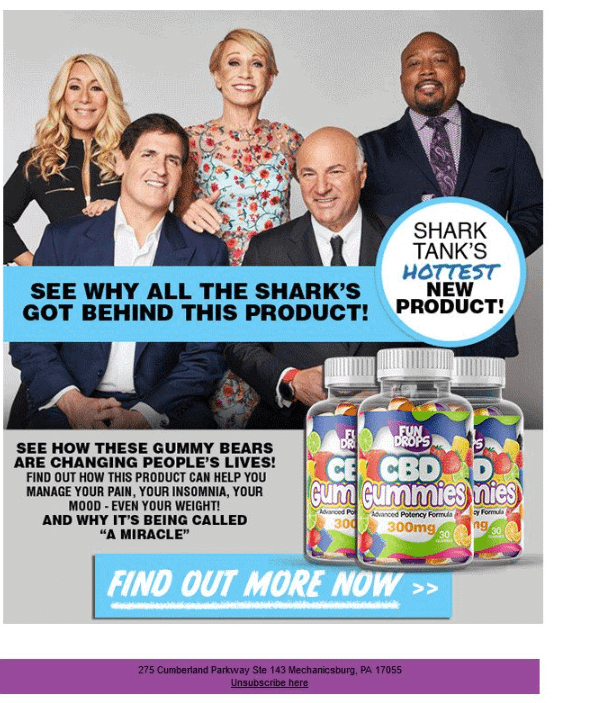Health fraud scams still make up a significant percentage of all fraud offenses. The products involved in these scams often offer baseless promises and even go as far as causing serious injuries or death. Aside from the too-good-to-be-true claims, these falsely endorsed medicines might have hidden ingredients that may harm consumers.

Here is a detailed example of a real falsely endorsed medicine scam:
- The spammers typically send you an email that looks like an advertisement for a medical product, claiming to solve some medical issue. Usually, the emails arrive with no text body of the email and are usually hyperlinked images.
- The first thing that happens when you click on the link, is they route you through multiple domains before you get to the landing domain.
- On the landing page, you get a ton of fake reviews and testimonials. Then the user is supposed to click on the “Buy now” button which takes you to the checkout page.
- The checkout page would require some details and credit card information, but what most unsuspecting users don’t know is that in the Terms and Conditions, some of the websites state that you would be signing up for a monthly subscription for the product.
- We have also noted that the destination the link takes you to depends on the region you click on it from. The same link in Germany and the US will NOT direct you to the same page.
Types of Falsely Endorsed Medicines
Scam medicines come in various forms. It’s essential to be cautious when purchasing medications, especially online. Some of the most common types of scam medicines include:
Miracle Cures
Miracle cures claim to heal a wide range of medical conditions, often promising quick and easy remedies even for serious illnesses. They usually also come in a whole range of products and services. These medicines might be advertised as alternative medicines that conventional doctors don’t support.
Extreme Weight Loss
Most weight loss scams promise great results without much effort. Some people get swayed by the promise of losing weight without exercise. Some products come in the form of revolutionary exercise devices, pills, and even creams. Celebrities, influencers, or attractive people are the typical endorsers of these products.
Fake Online Pharmacies
Fake online pharmacies use spam emails and websites offering cheap medicine and drugs without asking for a prescription. The phishing emails or sites attempt to steal credit card details or ask visitors to download files containing spyware that will take over your device. The products are also likely fakes and could harm your health.
Protect Yourself From These Scams
The Federal Trade Commission warns that some marketers use flashy promotional materials with complicated scientific terms to trick people into buying their products.
- Be skeptical of supplement promotions with scientific-sounding terms.
- Research companies and watch out for fake news.
- Monitor credit card statements to ensure you weren’t charged for anything you didn’t agree to.
- Don’t trust extreme product claims or enter into subscription deals without reading the terms.
- Always seek medical advice before trying a new product.
- Watch for pre-checked boxes on the terms and conditions.
- Learn the details for cancellations. In the case of free trials, set an alarm or mark your calendar to remind yourself to cancel the order.
- Check online for complaints from other customers, and watch out for fake news using familiar logos or names of news outlets to make the product seem legitimate.
By being aware of deceptive marketing tactics and doing your research, you can make more informed decisions about what you put into your body. It’s important to stay informed and cautious when it comes to purchasing dietary supplements or other types of medicine.
Remember to always consult with a qualified healthcare professional before trying any new products or treatments. Stay vigilant and keep yourself safe from scams!
SANGU protects its users from advanced cybersecurity threats! Get your invite to our pre-launch here.


